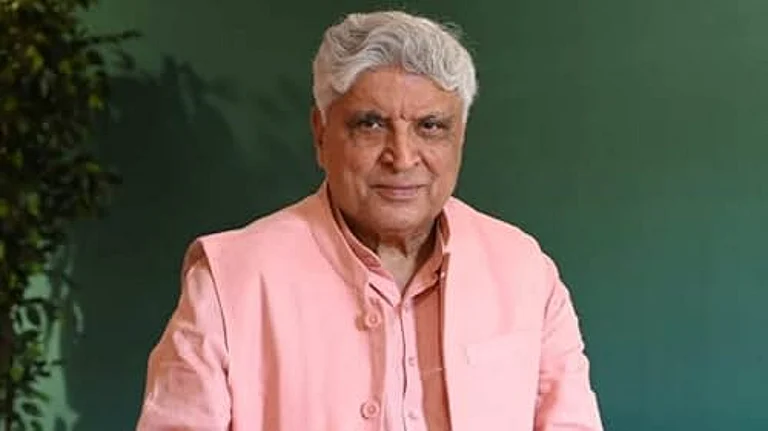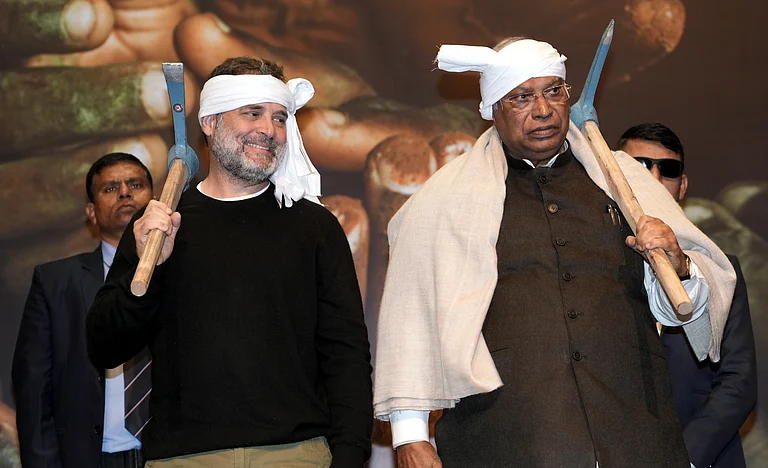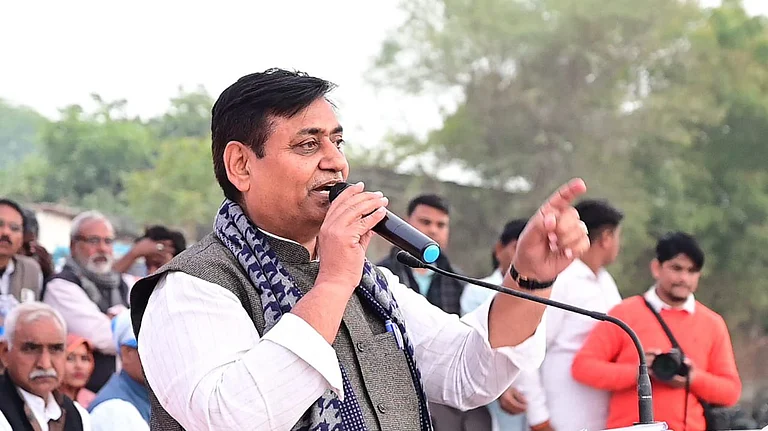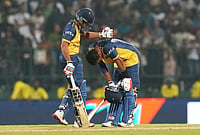In October 2017, a citizen’s group that included well-known activist Bezwada Wilson and musician T M Krishna presented a proposal of a model ‘progressive’ Uniform Civil Code (UCC) to the chairperson of the Law Commission of India, Justice B S Chauhan.
The draft proposed the dissolution of the Hindu Undivided Family and the repeal of various personal laws of religious communities, including The Hindu Marriage Act, 1955, The Muslim Personal Law (Sharia) Application Act, 1937, The Indian Christian Marriage Act, 1872, The Parsi Marriage and Divorce Act, 1936 and The Hindu Succession Act, 1956. The draft standardised the process of marriage, partnership, right to adopt, divorce, custody of child, succession and inheritance in accordance with uniformity of gender as well as sexuality.
For instance, it proposed that no non-judicial decree of divorce would have any legal effect. A divorce would be granted by a district court or civil court on an application by the person seeking it and after hearing the other spouse. There would be four grounds for divorce—mutual consent of both persons, irretrievable breakdown of marriage, physical or mental cruelty by the spouse or mental unsoundness of the spouse. The draft outlined an inclusive definition of marriage, as the legal union of a man with a woman, a man with another man, a woman with another woman, a transgender with another transgender or a transgender with a man or a woman.
The draft of the ‘progressive’ UCC was based on the premise that personal laws of all religions were beset with various inequities, especially in the context of gender. Unless the “discrimination entrenched in all personal laws” was not eliminated, the values and principles enshrined in the Constitution could not be truly honoured, the group said in a note to Justice Chauhan.
In 2016, the law commission had invited suggestions and views from public and organisations after the Ministry of Law and Justice had asked it to “examine matters in relation” to the UCC.
A UCC has been a long-held agenda of the Rashtriya Swayamsevak Sangh (RSS)-Bharatiya Janata Party (BJP) combine. In recent elections, both state and national, the BJP has promised that if elected to power, it would draft a UCC. In the party manifesto released for the 2019 Lok Sabha election, which gave Narendra Modi his second term as Prime Minister, the BJP reiterated its stand to draft a UCC, “drawing upon the best traditions and harmonising them with the modern times.” The party said it “believes that there cannot be gender equality till such time India adopts a Uniform Civil Code, which protects the rights of all women.”
While its contours have not been outlined, the UCC could mean a common set of laws governing personal matters for all irrespective of gender or religion. However, despite consistently involving the UCC in its political and electoral agenda and rhetoric, the BJP is yet to outline a draft for such a unified code.
What would the BJP’s UCC have in store for the diversity of personal laws and customs within the Hindu fold? At a time when the Supreme Court is pressed with the question of legalising same-sex marriage, with the ruling party opposing it, would the UCC exclude sexuality as a determinant? Would Hindu women be better able to exercise their right to property, which according to customs is often bequeathed to sons? Questions are plenty.
On May 15, Pushkar Singh Dhami, the chief minister of Uttarakhand, one of the few BJP states that have promised to bring in a UCC at the state-level, said that a committee formed by his government to prepare a draft of the code had completed 90 per cent work. The committee would submit its proposals by June 30.
A major section of civil society and Opposition parties have consistently looked at the BJP’s promise of a UCC with suspicion. They feel that in the Sangh Parivar’s book, the UCC was a majoritarian means to undermine the religious identity of minority communities.
But that brings us to the question—can there be a progressive UCC, one that is acceptable to all sections of society, gender and communities and does not reflect the ideological prism of the Hindu majoritarianism espoused by the BJP-RSS?
In the absence of an actual draft or clear-cut goals, public discussion has so far been limited to speculation. Many experts feel it may not be easy to implement a UCC that would be acceptable to all communities and groups. Rather than chasing the utopia of a unified code, they feel, the essence of an equitable unified code would be achieved if progressive reforms are brought into the various personal laws.
Even those who are theoretically in favour of a unified and equitable code but not one based on majoritarianism, argue that the process should start by each community reflecting on their own personal laws and comparing it with present-day norms of human rights and equality.
Those who are in favour of a unified and equitable code argue that the process should start with each community reflecting on their own personal laws.
Hasina Khan, a well-known feminist activist from Mumbai, advocates for the removal of gender discrimination in personal laws and making them inclusive rather than exclusive. What if she had to draft such a UCC? “I would not use the term UCC but a gender-just law,” she says. This would mean that anyone, be it one in a live-in relationship or a queer group, heterosexual group or a couple in companionship of some form, they should have legal rights and recognition. There should not be any burden of proof for self-determination regardless of gender identity, she says.
Khan, who as part of her group Bebaak Collective, had approached the Law Commission for suggestions on UCC, especially with regards to Muslim personal laws, stresses that polygamy and practices such as halala need to go. Also, she is in favour of making the Dissolution of Muslim Marriages Act, 1939 “gender neutral” so that the practice of unilateral talaq (by men to women) is over.
At present, if a Muslim woman wishes to divorce her husband, she has to take the trouble of making an application to the court. A Muslim man, however, can unilaterally divorce his wife under personal laws. Apart from this, Khan also pointed to the unequal inheritance and property rights under Muslim personal laws as well as in other religious personal laws. On the question of succession of property, there is no uniformity under Hindu laws on the inheritance of agricultural land by women who often face exclusion. “Few states have given daughters rights at par with sons but inheritance is a big issue across the country,” says senior lawyer Colin Gonsalves. He is in favour of a UCC but one based on constitutional values. “I don’t want a BJP code. I want a constitution law code,” he stresses.
While several commentators often engage in elaborate discussions on a possible UCC covering various aspects of personal laws, Gonsalves says “we must deal with the roots first and the branches later.” The key to achieving a UCC in essence is to simply remove all forms of discriminatory customs and traditions from personal laws. “If I had to draft a UCC, I would sum it up in one line. Any custom, practice or tradition which discriminates between male and female is unconstitutional and henceforth shall be treated as void,” he says.
The ‘progressive’ draft on succession and inheritance says that every person, whether adopted or biological, upon the parent’s death, will have an equal share along with the surviving parent in the property of the deceased parent, irrespective of their gender, sexual orientation or religion. Also, non-heterosexual married couples, or couples in partnership will be equally entitled to legally adopt a child as heterosexual couples in similar relationships.
Former attorney general of India Soli J. Sorabjee, in a letter to Justice Chauhan supporting the ‘progressive’ UCC draft, had stated that the recommendations of the Law Commission need to be far-sighted and progressive. “The Law Commission should obviate apprehension that anything uniform, would be majoritarian,” Sorabjee wrote.
In August 2018, in a 185-page consultation paper, however, the law commission said that the UCC “is neither necessary nor desirable at this stage.” The commission rather suggested a series of amendments to personal laws and further codification of certain other laws, particularly with respect to succession and inheritance.
While stressing that efforts have to be made to reconcile our diversity with universal and indisputable arguments on human rights, Justice Chauhan said that the term secularism would have true meaning if discriminatory practices within a religion did not hide behind the cloak of that faith to gain legitimacy.
Rahman agrees with the Law Commission’s conclusion on the lack of feasibility of a UCC. It would be better to reform existing personal laws of each community and bring them in conformity with modern laws or constitution, he argues.
For instance, in law of inheritance, there are so many restrictions in Muslim personal law which do not give women equal rights. A Muslim women can inherit only 50 per cent of what a man inherits. In a recent example, a Muslim couple from Kerala remarried and got their marriage registered under the Special Marriage Act to ensure that their daughters get a proper share of the father’s property.
MORE FROM THIS ISSUE
Under the Muslim personal laws, through which they conducted their first marriage, the daughters would only get a share of his property. Since he did not have a male heir, the remaining share would go to his brothers. In the Hindu marriage act, bigamy is a ground for divorce only if the first wife complains, says Rahman. On the other hand, if a Muslim man divorces his wife through utterance of triple talaq, he can go to jail.


























